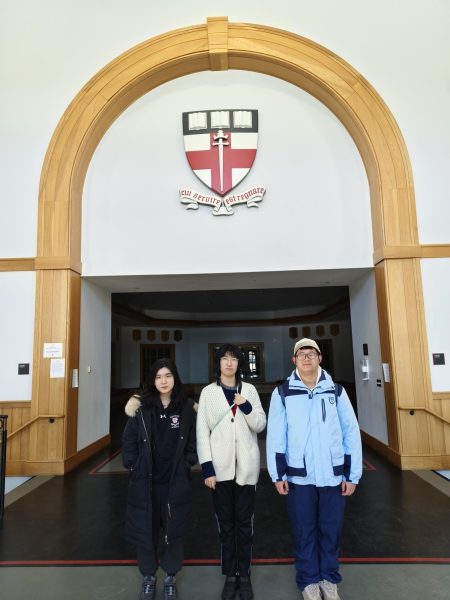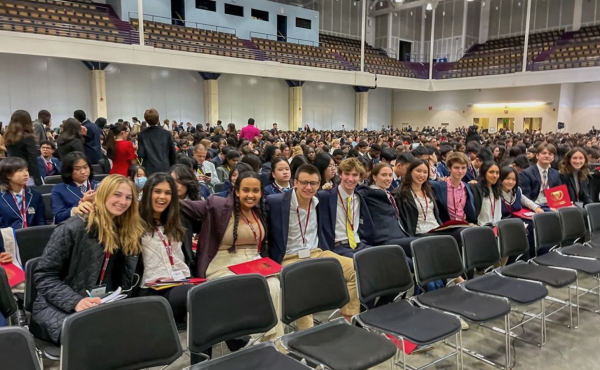Demystifying the Disciplinary Committee
 “What could you have done differently?”
“What could you have done differently?”
It’s a weighty question. As it lingers in the air, the student pauses. Some members on the Disciplinary Committee describe it as one of the most important moments at the end of every Q&A—and it is always asked, for good reason.
The disciplinary system at Groton is oftentimes not discussed, shrouded by its taboo nature. Composed of three faculty members and five students, Groton’s Disciplinary Committee (DC) stands at the system’s center. The students are made up of the two fifth-form officers, the two senior prefects, and a non-prefect senior who is appointed by the Headmaster. Reserved for more serious offenses, the DC advises the Headmaster on a recommended consequence.
Despite its ominous title, the DC is not designed to simply punish. Instad, it aims to serve as a safeguard against unfair punishment, ensuring that the student has their voice heard by having DC members represent a wide range of voices in the school.
Mrs. Gracey’s room, the location of these DC meetings, has a large table at its center. In a typical DC meeting, before the DC’d student and their advisor enters, the members of the DC take a seat around the table. DC’d students are then further given the opportunity to present their side of the case with a prepared statement, along with a statement given by their advisor. After the given statements, the DC then questions the student.
Mr. Anderson clarifies that the DC’s purpose is not to investigate, but to understand. “What could you have done better?” or “what can you do to make the situation better?” are frequently asked questions. Mrs. Gracey describes the process as “human and empathetic,” and no one is out head-hunting for consequences.
Senior Prefect Maya Varkey ’22 describes how the committee “wants to see growth” in the student. In many ways, that is whythe students are on the committee—they can be more empathetic towards the struggles that their peers face.
Once the student and their advisor leave the room for the DC to deliberate, conversations on the motive and context behind the wrongdoing are discussed at length. “Mr. Anderson might even bring out a bag of Milano cookies once the students leave,” says Brayden Haggerty ’23, a fifth-form officer and a DC member. Jasmine Garcia ’22, the non-prefect senior, notes how all voices at the table are equal when deliberating.
There is no set code for determining the student’s consequence. The members of the DC reiterate how each case is viewed uniquely with its own merits, with context and motive as huge factors.
However, a student who had been formerly DC’d pushed back against the notion that the committee provided a comfortable platform through which he could share his story. The meeting was tense, despite the students’ and faculty’s best efforts. Some of these factorsmay be attributed to the student’s specific case, however, and depend on the severity of the offense. Ultimately, the student did say that he believed that the consequence was fair.
The DC’d student mentioned that he would have liked to be better informed about the disciplinary process before facing the committee. Mr. Anderson recognizes this drawback, and advocates for the need of more open-discussions regarding the workings of the DC.
The DC may not be perfect, but Mr. Anderson reiterates how the committee offers students a mouthpiece to voice their side of the story, which may not be told if their consequences were decided by a single person. Though it is often feared and regarded as a committee of punishment, in truth, it “practices empathy in discipline.”





